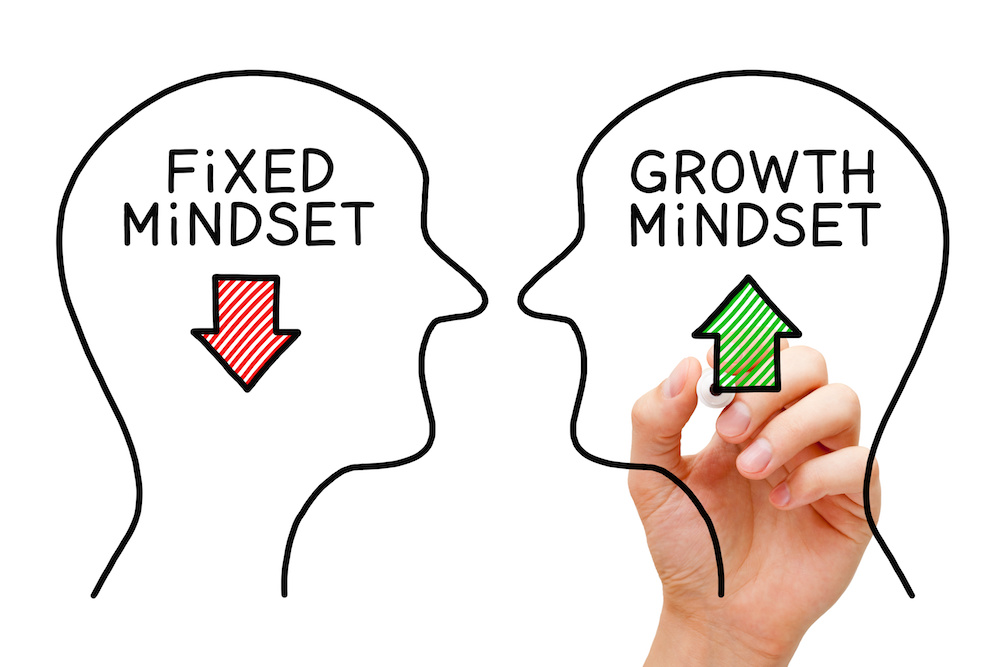By: Dr. Kim Feinstein, Psy.D., Red Mountain Clinical Psychologist and Behavioral Weight Loss Specialist
Have you ever wondered how some people balance their eating and exercise habits while maintaining a stable and healthy weight? We might think of these people as genetically “lucky” or believe they have a fast metabolism. However, what about those people who were once unhealthy, overweight and inactive, and then eventually changed their behaviors ?
Research tells us that these people can attribute their success to a changed mindset.
Types of mindsets
There are 2 general types of mindsets: negative and positive. As you might assume, a “negative” mindset is one that encourages you to give up, while a “positive” weight loss mindset encourages growth and goal achievement.
Characteristics of a negative mindset:
If you have a negative mindset, you likely experience an internal war of competing goals and motivations., which leads to emotional exhaustion, yo-yo dieting, emotional eating, guilt, shame, and weight management failure.
- You feel like weight loss/weight maintenance is “too hard’
- You believe that exercise is often a punishment
- You feel that eating healthy will stop you from having fun.
- You place greater value on work, family, and/or relaxing than on your health.
- You often feel victimized by your slow metabolism
- You frequently make excuses for why you can’t lose weight or exercise
Characteristics of a positive mindset:
If you have a positive mindset, you have an optimistic, winning attitude and outlook that encourages you to take the necessary actions to lose weight, increase exercise, and create a long-lasting, healthy lifestyle.
- You are committed to taking action
- You believe you are capable of making lasting changes
- You are willing to make nutritional and/or exercise behavior changes
- You believe the benefits of changing outweigh the costs
- You accept ownership of your behaviors and do not blame others
- You focus on the consequences to your choices
- You are willing to accept temporary discomfort
- You make yourself a priority
Changing your mindset
Beginning a weight loss journey is more than finding out which weight loss program works. To be able to see results & ultimately succeed, you need to make sure that you have the right mindset for weight loss.
If you have a negative mindset, don’t worry! You can always learn how to stay positive and stay motivated.
The 3 Cs Method
Use the 3 Cs: “Catch it, Check it, Change it” method outlined below to learn how to change your mental attitude for the better.

How to stay positive
After you achieve a positive weight loss mindset and begin the program that is best for you, it is important to keep working to improve! Remember: weight loss isn’t a journey, it’s a lifestyle. Maintaining your progress is just as important as the journey itself!
Visualize
Visualize your future self, six months to a year from now, and think of how good you’ll look and feel. Imagine practicing healthy habits, feeling more comfortable in your clothes, having increased energy, and experiencing improved sleep.
Think long-term
Remember: weight loss isn’t a journey, it’s a lifestyle. Maintaining your progress is just as important as the journey itself.
Be patient
Big changes take time! Especially when you’re eager to succeed, it can be easy to become frustrated. Combat this by reminding yourself of how far you’ve come and all of the positive changes you’re seeing.
Always remember to be kind to yourself! You are stronger than you think and absolutely capable of achieving anything you put your mind to.

Dr. Kim Feinstein, Psy. D. is a Licensed Clinical Psychologist and Red Mountain’s Behavioral Weight Loss Specialist. She specializes in weight management, body image concerns, and eating disorders & prides herself in her ability to educate, guide, and inspire patients to overcome obstacles and ultimately achieve their goals.







